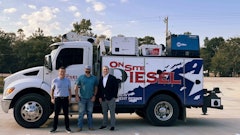Reading through this publication and others a few years ago, it would have been easy to come to the conclusion that retirement was in the near future for the engines that carry Rudolph Diesel's name. Tests seemed to show kids were in danger as they rode diesel-engined school buses, and General Motors' 1980s diesel-fueled cars were typically discussed as one of the reasons the engines were rarely found in grocery store parking lots.
Now, thanks to advanced, clean-burning engines for on-highway and non-road equipment and work by associations and manufacturers to educate the general public, the diesel engine is looking better every day. The consumer may see the compression-ignition engines of today are not the ones used in their father's Oldsmobile.
We're tired of high gasoline prices being a top news story, so the rush is on to find alternative energy sources, particularly in the on-road consumer market. The acceptance of diesel engines in new DaimlerChrysler or Volkswagen cars, trucks and SUVs is important to the industries OEM Off-Highway covers. They help the general public understand diesel engines are a viable alternative to gasoline engines (see Dave Jensen's "Emissions" column in this issue).
The increasing popularity of biodiesel is helping publicize the positive aspects of diesel engines. Support of biodiesel continues to rise, most recently with Case IH officially approving B20 blends in its own engines, and its plan to use biodiesel as factory fill in most cases. At the State Fair of Texas in September, DaimlerChrysler introduced a 6.7L Cummins diesel engine for its 2007 Dodge Ram 2500/3500 models which is approved to run B5. New Rams will be filled with B5 at the factory.
St. Louis-based agricultural specialist Monsanto Co. has gotten involved by using B20 in its campus shuttle buses. Monsanto's shuttles put on 178 miles daily, with more than 3,300 riders per month.
The move falls in line with the company's philosophy: "When farmers succeed, we succeed. So, we take our cue from our farmer customers. We use the tools of modern biology to support our commitment to agriculture and to support the farmers that feed, clothe and fuel our growing world."
One of the benefits in working to grow diesel fuel on America's farms is keeping our energy dollars in this country. According to a recent study by the National Biodiesel Board — if their assumption that biodiesel growth will reach 650 million gallons annually by 2015 is correct — the biodiesel industry will add $24 billion to the U.S. economy over the next ten years. Of the 39,102 jobs it could create, most will be in rural areas.
There's a long way to go in order to meet all of the nation's energy needs with crops, but the industry is moving in that direction: In 2006, there were 88 plants producing an estimated 250 million gallons of biodiesel, triple 2005's production.















